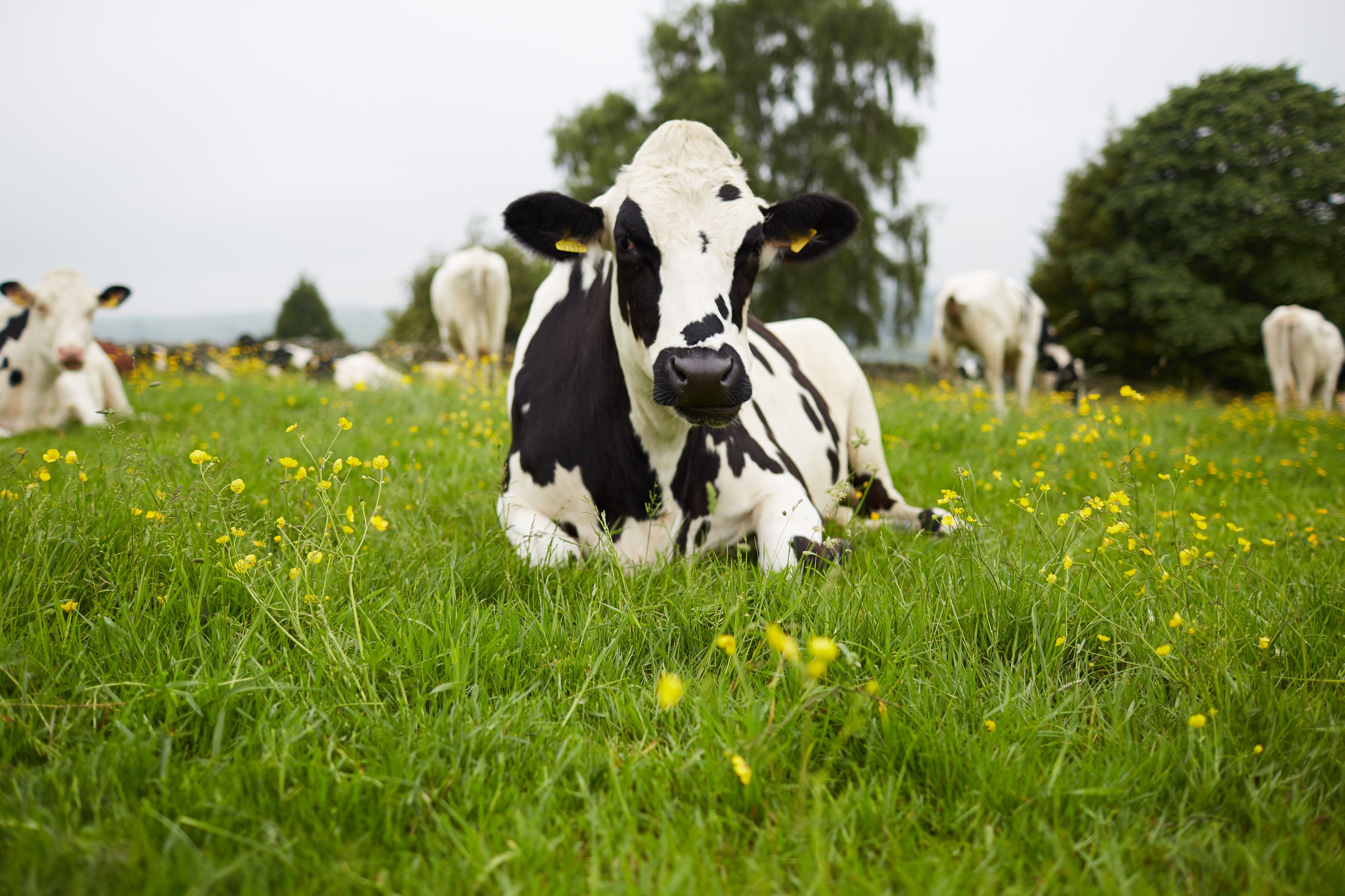
This supplement can reduce methane in cows and make farmers money
London (CNN Business)With more than 1.4 billion cows in the world, cattle farming accounts for nearly 10% of all greenhouse gases generated by human activity.
A big chunk comes from the methane cows emit, but a new feed supplement could reduce those emissions by an average of 30%, according to its makers. If all the world's cows ate the supplement, the reduction in emissions could be equivalent to taking more than 300 million cars off Europe's roads.
Developed by Swiss-British startup Mootral, the supplement, based on garlic and citrus extracts, is mixed with regular cattle feed, reducing methane emissions by the equivalent of around one ton of carbon dioxide per cow per year.

The supplement comes in the form of pellets that are mixed into the cow's feed twice a day.
The company is now converting these savings into carbon credits — approved by Verra, a global program for voluntary carbon offsets — that are sold to businesses that want to offset their emissions.
Proceeds from the sale of the carbon credits go back to the farmers, subsidizing the initial cost of the feed and encouraging them to buy more, Mootral CEO Thomas Hafner tells CNN Business.
"Carbon credits are an important stimulus tool to drive the adoption of climate-friendly technologies," Hafner says.
Farmers market
Brades Farm in Lancashire, northwest England, is the first commercial farm to take advantage of Mootral's carbon credit program. Its herd of 440 dairy cows are fed the supplement twice a day.
The feed additives help to inhibit the microbes in a cow's stomach from making methane, which is usually produced as a byproduct of digesting fibrous plant material like grass.
Brades Farm brands itself as climate-friendly, with "less cow burps" emblazoned on its cartons.
"It's difficult to make a living from dairy farming, there's bills to pay all of the time," says Joe Towers, who runs the farm with his brother Ed. "The carbon credits are a real opportunity ... to offset that cost for farmers," he says.
The feed supplement has an added commercial benefit for the farm. By marketing their cows as low methane, the brothers have found a niche selling premium milk to London coffee shops.
Mootral's so-called "CowCredits" don't come cheap. They entered the market in April costing around $80 each, with one credit offsetting one ton of CO2.
Forestry offset schemes, by comparison, cost an average of $4 per ton of CO2, according to research firm Ecosystem Marketplace. But Hafner believes there's demand for credits that offer an "immediate verified reduction" in emissions, rather than those that promise future savings they may not deliver.
With businesses under increasing pressure to reduce their climate impact, the demand for offsets is growing. Ecosystem Marketplace estimates that the global voluntary offset market was worth $320 million in 2019, more than double its value two years before. The Taskforce on Scaling Voluntary Carbon Markets — a private sector initiative — estimates it could grow to more than $50 billion by 2030.
So far Mootral has generated more than 300 CowCredits. It wants to create 10,000 in the next year, and is looking to raise $2.5 million from investors to scale up the rollout.
Scaling up
But there are challenges. How much methane is reduced by the feed supplement depends on a cow's breed and environment. So far, Mootral has only performed extensive tests on the two breeds at Brades Farm, but Hafner says it plans to conduct further studies in different parts of the world.
Different feeding routines for beef cattle and dairy cows add another layer of complexity.
Dairy cows typically come home every day for milking, making it easier to put them on a strict diet.
Still, Hafner is confident Mootral will find a solution, and the company will soon begin testing at a ranch in Texas with 12,000 beef cattle.
Liam Sinclair, a professor of animal science at Harper Adams University, in the United Kingdom, says it will be necessary to monitor the effects of Mootral's product over time, as there is a risk that changing the diet could affect a cow's digestion, potentially reducing its growth rate or milk yield.
"It is also very important that the product is available and cost-effective in developing countries if there is to be a meaningful reduction in methane production," he adds.
Read the article on CNN here
To watch the CNN footage click here
